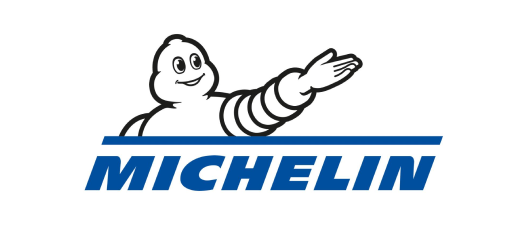“To have data streaming implemented at a global scale at L'Oréal called for a platform that’s reliable, can auto-scale depending on our need...and can cater to our future growth—all while ensuring we get the utmost support we need. That’s why we invested in Confluent.”
Sindhu Prasanna
Event-Driven Architecture Lead, L'Oréal Group
“Data streaming is crucial for driving digital transformation at L'Oréal, which in turn helps us increase agility to meet our consumers’ needs rapidly. Changing world constantly needs innovation and personalization. In an era where we envision having data at our fingertips, Confluent’s data streaming platform helps set our data in motion by facilitating real-time data flows between our systems and applications.” - Sindhu Prasanna, Event-Driven Architecture Lead, L’Oréal Group
L’Oréal, the world’s largest cosmetics company, has its eyes set on the future of beauty. Headquartered near Paris, the Group centers its operations on hair and skincare, makeup, and fragrances, with numerous brands such as Garnier, Maybelline, Lancôme, Cacharel, and Ralph Lauren Fragrances etc. under its umbrella.
The company began as the brainchild of a chemist, so embracing the latest technology has always been a part of L’Oréal’s DNA. Today, that means embracing a technology like data streaming to drive modernization and innovation.
For L'Oréal, the journey to data streaming began with the need for modernizing its architecture and tech stack to meet the demands of the data-driven world. This meant replacing its legacy data stack based on manual file transfers, messaging queues, and batch processing.
As a globally-distributed organization, L'Oréal also needed a way to reliably integrate data from a wide range of operational and analytical systems, and make it available in real time to internal and external partners. This meant advancing toward a new realm of technologies and architecture, including an API-first approach and event-driven architecture integration based on Apache Kafka®.
L'Oréal embarked on its data streaming journey with Azure Event Hubs. However, Azure Event Hubs marked a transition in L'Oréal's data infrastructure strategy, due to its proven limitations. The team experienced maintenance and scalability issues related to auto-scaling, partition number, throughput limitations—and found the platform lacking governance features, support for stream processing frameworks.
Ultimately, this was holding L'Oréal back from driving value with an event-driven architecture.
The search for a more reliable and robust platform led L'Oréal to Confluent.
“To have data streaming implemented at a global scale at L'Oréal called for a platform that’s reliable, can auto-scale depending on our need, has filtering capabilities, and can cater to our future growth—all while ensuring we get the utmost support we need. That’s why we invested in Confluent,” Prasanna said.
Unlocking Current and Future Use Cases: From Logistics to HR
Today, Confluent Cloud enables L'Oréal to keep up with the speed of modern business and drive endless, impactful use cases—now and into the future.
Take its third-party logistics applications (3PL) use case, for example.
The company has numerous third party applications, including Sephora, Monoprix, and Carrefour, that aren’t hosted on L'Oréal but are active listeners of products that get manufactured at L'Oréal. This calls for integrations with L'Oréal’s current inventory details on underlying core systems. Co-packers, a subcontractor that handles bill of materials and delivery of L'Oréal products, is one such third-party application that currently integrates with Confluent to get access to the data it needs and in real time, including updates on product stock levels.
“Real-time data allows third-party applications to access information from source applications immediately, as it becomes available. Applications and flows are connected and talking to each other—which is absolutely what we are aiming for with Confluent,” Prasanna said.
Today, events are triggered only when catalog or SKU changes happen in the backend system.
Previously, numerous API calls—for example, 500 calls in five minutes—handled all these updates causing eventual increase in load, system stress and failures.
With Confluent, L'Oréal has been able to streamline this process by replacing hundreds of API calls, managed file transfers, and ETL with a few efficient events—significantly improving the system’s performance.
L'Oréal is also continuously assessing how to build out future use cases using Confluent, including employee-onboarding and payroll use cases.
“We cannot build such use cases on a public cloud because that (PII) data is really sensitive. With Confluent we have our clusters on a private cloud, which ensures we can support such (future) internal-facing use cases. Confluent’s robust security features, including end-to-end encryption, prevents unauthorized access to that sensitive data,” Prasanna said.
Future Forward: Focusing on Business Needs
Full modernization of L'Oréal’s tech stack is rolling out in phases, so it’s important to the IT team to be able to put its trust in Confluent and receive the guidance to put the pieces in place in the right order. The company envisions a transition where they:
Dismantle Azure Event Hubs, which means migrating around 200 applications to Confluent Cloud
Promote the use of ksqlDB, Flink, and Kafka Streams to enable data filtering and make it easily usable
Establish data contracts between their producers and consumers by using Schema Registry and Stream Governance
Utilize and build simple integrations with fully managed connectors available on Confluent
And future use cases of data streaming at L'Oréal, Prasanna said, would be focused on catering to the needs for business projects and use cases.
“At L'Oréal, we are looking to onboard several business use cases with Confluent in the near future. We want to enable the business as much as possible. As we build our technical stack, it's very important to captivate our business and help them understand how user-friendly Confluent and its capabilities are, including features like Stream Governance,” Prasanna said.
Get Started With Confluent Today
New signups receive $400 to spend during their first 30 days.



